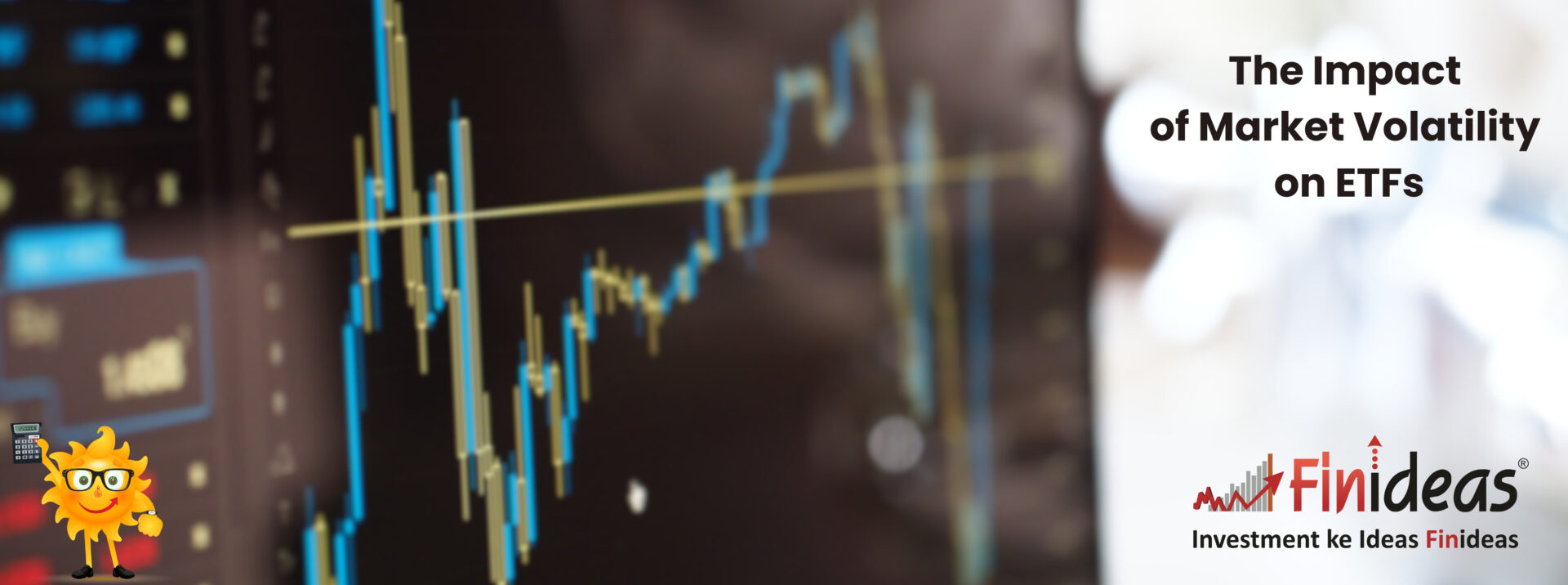Impact of Market Volatility on ETFs
Introduction
Market volatility is an inherent characteristic of financial markets, and its impact can be felt across various investment instruments. Exchange-Traded Funds (ETFs) in the Indian market are not immune to market volatility. In fact, they can be particularly affected by rapid price swings and uncertainty. In this blog post, we will explore the impact of market volatility on ETFs in the Indian market and discuss how investors can navigate these challenges to make informed investment decisions.
Understanding ETFs
Before we delve into the impact of market volatility on ETFs, let’s briefly understand what ETFs are. ETFs are investment funds that trade on stock exchanges, mirroring the performance of a specific index or asset class. They provide investors with exposure to a diversified portfolio of securities, such as stocks, bonds, or commodities. ETFs are known for their liquidity, transparency, and cost efficiency, making them a popular choice among investors.
We also use ETF’s in Long Term Investment Strategy, so that we can avail the benefits mentioned above for our investors
Impact of Market Volatility on ETFs
Market volatility can significantly impact ETFs in the Indian market due to their underlying holdings and trading mechanisms. When markets are volatile, the prices of the securities held by ETFs can experience sharp fluctuations. This volatility can result in a divergence between the net asset value (NAV) of the ETF and the market price at which it trades. In times of extreme volatility, the market price of an ETF may deviate significantly from its underlying NAV, leading to potential tracking errors.
During periods of high market volatility, ETFs may also face challenges related to liquidity. Increased volatility can lead to wider bid-ask spreads, making it more costly to buy or sell ETF shares. Additionally, if market participants become more risk-averse during volatile times, the trading volume of ETFs may decrease, further impacting liquidity.
Managing Volatility in ETF Investing
Despite the challenges posed by market volatility, there are strategies that investors can employ to manage risks and make the most of ETF investing:
1. Diversification: Building a diversified portfolio of ETFs can help mitigate the impact of volatility. By spreading investments across different asset classes, sectors, and geographies, investors can reduce their exposure to any single security or market segment. Diversification allows investors to benefit from potential outperformance in one area while mitigating losses in another.
2. Risk Assessment: Understanding the risk profile of an ETF is crucial before investing. Some ETFs may be more volatile than others due to their underlying assets or investment strategies. By carefully evaluating an ETF’s historical performance, volatility measures, and underlying holdings, investors can make informed decisions that align with their risk tolerance.
3. Active vs. Passive Management: ETFs come in both active and passive management styles. Active ETFs are actively managed by portfolio managers who aim to outperform the market, while passive ETFs aim to replicate the performance of an index. During periods of high volatility, passive ETFs may provide a more predictable investment outcome, as they are not subject to the biases or timing decisions of active managers.
4. Long-Term Perspective: Volatility is often short-term noise that can distract investors from their long-term investment goals. Taking a long-term perspective can help investors ride out market volatility and potentially benefit from market recoveries. Instead of making knee-jerk reactions to short-term market fluctuations, investors should focus on their investment objectives and stay committed to their long-term strategies.
Conclusion
Market volatility can have a significant impact on ETFs in the Indian market, affecting their underlying holdings, trading mechanisms, and liquidity. However, by employing strategies such as diversification, risk assessment, considering active vs. passive management, and maintaining a long-term perspective, investors can navigate the challenges posed by market volatility.
Do you think that can the above strategy’s can help us manage the Impact of Market Volatility on ETF’s, please let us know by commenting below
Happy Investing!

